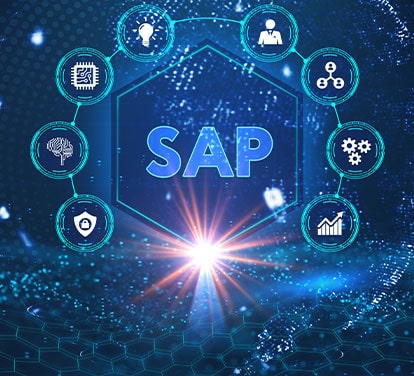29.5% of API developers’ time is spent in programming and coding APIs, according to a Statista report on time allocation of application programming interface (API) tasks worldwide.
Introduction
API management plays a vital role in enabling digital transformation initiatives for organizations by facilitating the creation, publication, security, and monitoring of APIs. Effective API management solutions are essential for building software applications securely and efficiently. With the ever-evolving technology landscape, exploring emerging trends and future prospects in API management is crucial. In this blog post, we will delve into the exciting possibilities and innovations that lie ahead in API management. From serverless computing to enhanced security measures, integration with AI and ML, and developer-centric approaches, we will uncover the transformative trends shaping the future of API management.
Increased Use of Serverless Computing
Serverless computing has gained significant traction recently and is poised to impact API management substantially. The scalability and cost-efficiency of serverless architectures make them an attractive option for API management solutions. With serverless computing, APIs can automatically scale based on demand, ensuring optimal performance and resource allocation. This trend allows organizations to handle varying workloads seamlessly and reduces infrastructure costs. By leveraging serverless computing, API management solutions can deliver enhanced scalability, agility, and cost-effectiveness.
Greater Focus on Security
In an era of increasing cyber threats, robust security measures are paramount in API management solutions. Organizations are seeking advanced authentication and authorization methods, more robust encryption techniques, and comprehensive monitoring tools to ensure the security of their APIs. API management platforms will likely incorporate innovative security features to detect and prevent attacks effectively. By adopting proactive security measures, organizations can minimize the risk of security breaches and protect sensitive data. The future of API management hinges on providing ironclad security to safeguard valuable assets and maintain trust among consumers.
Integration with Artificial Intelligence and Machine Learning
Artificial intelligence (AI) and machine learning (ML) advancements are revolutionizing various industries, and API management is no exception. API management solutions can leverage AI and ML technologies to optimize API performance and streamline management processes. AI and ML can facilitate efficient resource allocation and management by analyzing API usage patterns and predicting future demands. This integration empowers organizations to make data-driven decisions, optimize API workflows, and enhance operational efficiency. Utilizing AI and ML in API management presents an exciting opportunity for organizations to unlock new levels of productivity and performance.
Emphasis on Developer Experience
With the proliferation of APIs, the developer experience has become a critical factor in API management. Organizations recognize the significance of providing user-friendly documentation, software development kits (SDKs), code samples, and robust testing and debugging tools to enhance the developer experience. API management solutions can boost developer productivity and satisfaction by prioritizing developer-centric approaches. This trend fosters collaboration, encourages innovation, and drives the adoption of APIs within the developer community. In the future, API management platforms will continue to invest in improving the developer experience to create a thriving ecosystem of developers and foster innovation.
Adoption of Hybrid and Multi-Cloud Architectures
The adoption of hybrid and multi-cloud architectures is on the rise as organizations seek to leverage the advantages of multiple cloud providers while maintaining control over their infrastructure. API management solutions must adapt to support these architectures and provide seamless API management across diverse cloud environments. This trend calls for comprehensive tools and services that effectively enable organizations to manage APIs in hybrid and multi-cloud setups. By embracing hybrid and multi-cloud architectures, organizations can achieve scalability, resilience, and flexibility in their API management strategies.
GraphQL: Enhancing Flexibility and Efficiency
GraphQL is gaining momentum as a modern alternative to traditional RESTful APIs. It allows clients to specify the exact data they need, reducing over-fetching and under-fetching of data. With GraphQL, developers can query multiple resources and receive responses in a single request, improving efficiency and reducing network overhead. This trend empowers organizations to design APIs that provide tailored data, leading to enhanced user experiences and more efficient data consumption.
Event-Driven Architectures: Real-Time Interactions
Event-driven architectures enable real-time communication and seamless integration between different systems and services. APIs that support event-driven architectures leverage asynchronous messaging and event-driven workflows. Organizations can build highly scalable, loosely coupled systems that respond to events in real-time by emitting and consuming events. This trend facilitates dynamic integrations and enables organizations to react quickly to changing business requirements.
Low-Code/No-Code APIs: Democratizing Development
Low-code and no-code platforms revolutionize application development by empowering non-technical users to build software solutions without extensive coding knowledge. APIs are crucial in these platforms, allowing users to connect to external systems, services, and data sources. This trend democratizes development, enabling citizen developers to create custom applications and integrations rapidly. With low-code/no-code APIs, organizations can accelerate their digital transformation initiatives and foster innovation throughout the workforce.
API Monetization: Unlocking Business Value
API monetization is becoming a significant trend as organizations recognize the business value of their APIs. Instead of treating APIs as technical assets, organizations leverage them as products and revenue streams. API monetization models include usage-based pricing, freemium plans, tiered subscriptions, and revenue-sharing partnerships. This trend allows organizations to unlock new revenue streams, forge strategic alliances, and gain a competitive edge in the market.
API Marketplaces: Enabling Collaboration and Innovation
API marketplaces facilitate the discovery, integration, and consumption of APIs from various providers. These marketplaces act as central hubs, connecting API providers with developers and fostering collaboration and innovation. Organizations can accelerate development, leverage third-party services, and build ecosystems around their APIs by offering a wide range of APIs. API marketplaces enable organizations to extend their reach, tap into external expertise, and drive digital transformation through seamless API integration.
Conclusion
API management is a dynamic field with significant growth potential. By embracing emerging trends, organizations can unlock the true power of APIs, drive innovation, and achieve their digital transformation goals. The future of API management holds immense potential for organizations seeking to leverage APIs as a driving force behind their digital transformation initiatives. As explored in this blog post, several key trends and innovations are shaping the API management landscape.













